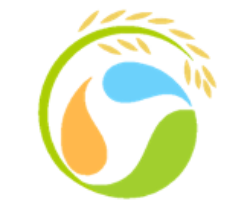Myanmar, where agriculture plays a vital role in the economy and livelihood of the majority of the population, empowering farmers becomes crucial for sustainable development and growth. Recognizing this need, Permaculture Institute Myanmar (PIM) has launched a comprehensive Farmer Empowerment Program (FEP) aimed at transforming the lives of farmers and boosting the agricultural sector. We explores the key features and benefits of the FELP and its potential impact on Myanmar’s farming communities.
Access to Knowledge and Training: The FELP focuses on equipping farmers with essential knowledge and skills to enhance their productivity and efficiency. PIM conducts training sessions and workshops on modern farming techniques, sustainable practices, crop diversification, water management, and post-harvest handling. By imparting up-to-date agricultural knowledge, the program empowers farmers to make informed decisions and adapt to changing market demands effectively.
Financial Inclusion and Support: Recognizing the financial constraints faced by farmers, the FEP offers financial support. By ensuring financial inclusion, the program enables farmers to invest in their farms, expand their operations, and improve their overall economic conditions.
Market Linkages and Value Addition: One of the significant challenges for farmers in Myanmar is the lack of direct access to markets. The FEP are working to bridge this gap by establishing strong market linkages between farmers and potential buyers. PIM also facilitates the creation of farmer cooperatives and encourages value addition activities such as processing, packaging, and branding. By connecting farmers with higher-value markets, the program helps them secure better prices for their produce and improves their profitability.
Women and Youth Empowerment: The FELP recognizes the crucial role of women and youth in agriculture and promotes their active participation. PIM conducts specialized training programs tailored to the specific needs and challenges faced by women and young farmers. These initiatives focus on empowering women with technical skills, entrepreneurial training, and leadership development. By fostering gender equality and youth engagement, the program creates a more inclusive and vibrant agricultural sector
The Farmer Empowerment Program initiated by the Permaculture Institute Myanmar in Myanmar holds significant potential for transforming the lives of farmers and revitalizing the agricultural sector. Through its comprehensive approach encompassing knowledge transfer, technology adoption, financial support, market linkages, and inclusive participation, the program enables farmers to overcome challenges and enhance their productivity and income. By empowering farmers, Myanmar can achieve sustainable agricultural development, alleviate rural poverty, and secure food security for its population.
